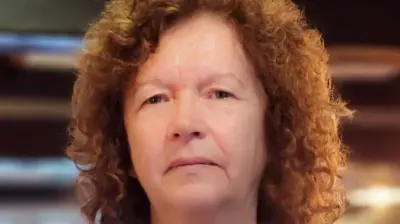We've updated our Privacy and Cookies Policy
We've made some important changes to our Privacy and Cookies Policy and we want you to know what this means for you and your data.
Netflix trials charging $2.99 for shared accounts
Image source, Getty Images
Netflix is expanding its push to charge people for sharing accounts, as it looks for new ways to make money after years of massive growth.
The streaming service said it would ask subscribers in five countries in central and South America to pay an extra $2.99 (ÂŁ2.50) per month to add a "second home" to their accounts.
And it warned the clamp down on password sharing will spread worldwide.
The latest announcement came ahead of its results which are due on Tuesday.
Earlier this year the company announced its first subscriber fall in more than a decade. The firm is due to provide an update on its members along with its results, in which it is expected to reveal the fall off in subscribers increasing.
It is a stark reversal for a company that for years saw seemingly unstoppable growth, as it revolutionised the way people around the world consume entertainment, shaking up the traditional television and movie theatre business.
Its position as a global behemoth was cemented when the pandemic hit in 2020 and people, stuck at home with few other options for entertainment, flocked to its shows.
But as pre-pandemic habits return, Netflix is struggling to attract new sign-ups - and maintain the loyalty of existing members.
Price hikes have prompted people in countries such as the US and UK to cancel subscriptions, while a raft of new competitors, like Disney, many of which used to sell their movies and television series to Netflix, tempt audiences in the US and elsewhere to switch.
Research suggests that people are increasingly signing up to watch specific shows and then cancelling accounts.
It is not clear how families will respond to the firm's request for more money for shared accounts.
it would charge households in certain countries such as Chile to add an "extra member".
, which comes into effect from next month in Argentina, Honduras, Guatemala, El Salvador and the Dominican Republic, presents the request in slightly different terms, seeking $2.99 for each additional home.
People can edit their accounts to remove homes at any time, it said.
Netflix has said it expects to experiment with different ways of presenting the charges before rolling them out globally as soon as the end of this year.
When things were going well, Netflix could afford to ignore account sharing, but now it makes sense to try to tap into the people sharing passwords, even at risk of alienating some, said Guy Bisson, executive director at Ampere Analysis.
"I think they'll probably gain more than they would lose from doing this," he said. "They can roll it out sequentially and gradually and make sure it's having the effect they expect."
In addition to trying to get more money out of existing audiences with the password sharing crackdown, Netflix has said it will experiment with a lower-cost ads-based service.
Top Stories
More to explore
Most read
Content is not available








